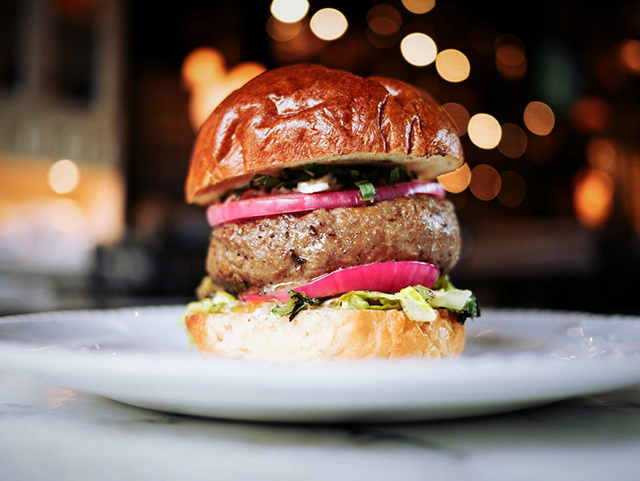
I wrote my first persuasive essay while staring at a cartoon hamburger. While gesturing to the individual ingredients that made up a neon hamburger on the overhead projector, my elementary school teacher explained the “Hamburger Method” of writing a persuasive essay.
The Hamburger Method starts with the top bun: the introductory paragraph and main point. Three paragraphs represented by the lettuce, the cheese, and the meat follow the first bun. These three paragraphs each cover a supporting argument to enhance the main point. The final paragraph, the bottom bun, restates the main argument of the essay.
While the Hamburger Method is, admittedly, a simplistic look at writing persuasive essays, the method stuck has stuck with me for years. That's why I’ve updated the Hamburger Method to help with any form of persuasive writing.
Top Bun: Do Your Research
Opinions are cheap and everyone has them.
Opinions alone don’t develop into well-crafted persuasive essays. Opinions need evidence and facts to corroborate and develop a convincing argument. Readers can tell when you’ve put the extra legwork into an essay to shore up your convictions. This is why research is the starting point for persuasive writing.
When writing a persuasive essay, I first read any relevant source material a few times through to make sure I understand the concepts. Sometimes I’ll listen to a podcast discussing the topic and, when necessary, read histories to provide context on the time of the source. Research helps to enhance and reshape our opinion into the essay’s main point.
Lettuce: Develop the Main Point
The main point is what you want your reader to walk away with. In my elementary school teacher's original Hamburger Method, the main point opens and closes the essay. When writing a persuasive essay, it’s important to develop the main point before you write.
When developing a main point, allow your research to enhance your opinion. It’s OK to change your original opinion based on the evidence discovered. Combine the two into the point you want people to walk away with after reading. Every part of the persuasive essay should direct the audience toward the main point.
Cheese: Hook the Audience
If you don’t hook your reader in the first sentence or two, they’ll never make it to the main point. It doesn’t matter how well evidenced and developed your main point is, the entire persuasive essay hinges on the introduction.
There are several ways to hook the reader. No one hooks a reader better than Benjamin Sledge. He begins each essay with a quote or story that captures the reader’s attention and draws them toward his main point.
I did the same with my hamburger story above. While not very detailed, I used the memory of my elementary school experience to draw the audience into this essay.
A reader will decide in the first few lines if they will read your essay or move onto the next thing. Capturing their attention with a story goes a long way in helping the reader explore the opinion and evidence presented.
Meat: Write the Thing
Once you’ve developed a great hook, you’ve got to do the rest of the work. Write the body of the essay. Build upon the main point using the supporting evidence and research you've found.
The meat of the persuasive essay should include supporting evidence and research. Use additional stories or examples to continue drawing the reader in so they understand your argument. Provide enough evidence to help convince the reader to agree with your main point.
Bottom Bun: Challenge the Audience
While the first sentence is important to hook the reader, the final words are just as important to leave them thinking. If the reader clicks on the next thing and forgets what they read, the essay failed. The reader needs a challenge to let the ideas stir in their head.
At its simplest form, the challenge is a restated main point. Great challenges allow the reader to contemplate their own views and opinions. With the reader left re-evaluating their approach, the persuasive essay succeeded.
Sink Your Teeth Into Your Persuasive Essay
Do you have what it takes? Decide who makes your favorite hamburger and convince me why that burger is better than any other. Develop your main point, corroborate it with evidence, and hook me into your opinion.
Are you up to the challenge?

